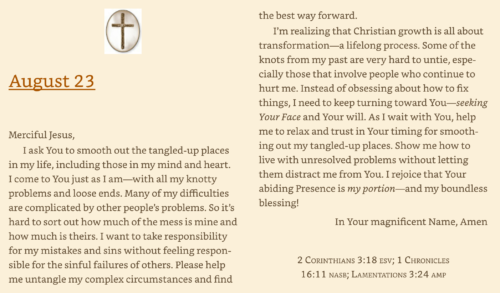Communal Restoration
Author and minister Dominique DuBois Gilliard identifies the relational emphasis of God’s justice:
Restorative justice aligns with the heart of God. It supports that justice is primarily relational rather than individual. In the Old Testament, justice and sin were both relational realities, and justice was not about upholding individual rights but protecting the well-being of communities.…
This rightness of relationships on every level is known as shalom, which is juxtaposed to the state’s understanding of justice. Shalom calls Christians to view and pursue justice in light of God’s original intent. It summons us to live within the confines of covenantal community, where we actively pursue communal flourishing, consider the interests of others (particularly “the least of these”), and prioritize the restoration of righteous relationships in the face of harm. Crime is never merely an individual breaking the law; it is always a communal transgression that fractures shalom.
God’s justice is restorative and reconciling as opposed to retributive and isolating. Our criminal justice system quarantines people who cause harm, which subsequently harms them through punitive measures and dehumanizing conditions. Theologically, restorative justice acknowledges that divine justice entails people being reconciled to God, each other, the community, and themselves.…
God’s justice moves toward restoration, reintegration, and redemption. God’s justice is inherently connected to healing the harmed, restoring what has been lost, and reconciling those who are estranged from God and community. God’s heart and justice are inherently restorative.
Restorative justice gives shape to a communal ethic that is conciliatory in spirit and just in nature. It provides a structure for conflict resolution that facilitates truth telling, accountability, forgiveness, and restitution. The restorative nature of God’s justice is woven throughout Scripture. Divine justice induces relational rightness between hostile parties, the holistic reintegration of exiled individuals, and economic and systemic restitution in the face of harm. Throughout Scripture, God works amid brokenness, restoring victims, communities, and offenders. [1]
Biblical scholar Christopher Marshall, a practitioner of restorative justice, writes:
Biblical justice is a complex, multi-faceted reality. It relates to every dimension of human experience, and it has many different applications. But arguably the term that best captures the spirit and direction of biblical justice, both social justice and criminal justice, is the word restoration. Justice flows from God’s own being and designates the way God intends the world to be. But things have fallen into disorder; the shalom of creation has been ruptured. God responds by seeking to restore the world to the way it ought to be.
Biblical justice seeks to restore dignity and autonomy to those who have been unjustly deprived of access to sufficient resources in order to meet their own basic needs for physical survival and human fulfillment. God acts to reconstruct shalom by overthrowing oppressive powers and setting victims free, and by healing the destructive legacy of sin and death. To know this God is to learn about the meaning of justice. To love this God is to join in God’s great campaign to restore justice to the world. [2]
